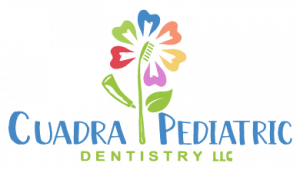Baby teeth, or primary teeth, are often viewed as temporary placeholders until adult teeth come in. However, their role in a child’s overall health and development is far more significant than many parents might realize. Early dental care is crucial for ensuring that these temporary teeth serve their purpose effectively, setting the stage for a lifetime of good oral health. In this blog, we’ll explore why baby teeth are important, the benefits of early dental care, and practical tips for parents to support their child’s oral health from the very beginning.
The Role and Importance of Baby Teeth
1. Function and Development
Baby teeth are essential for several key functions in a child’s development:
- Eating and Nutrition: Baby teeth enable children to chew and grind food properly, which is vital for nutrition and healthy digestion. Proper chewing helps in the efficient breakdown of food and the absorption of nutrients necessary for growth.
- Speech Development: The development of clear speech is closely linked to the presence and alignment of baby teeth. They help in the proper formation of sounds and words, which is crucial for language development.
- Jaw Development: Baby teeth play a significant role in the development of the jaw and facial muscles. They help guide the growth of the jawbone, ensuring that there is adequate space for adult teeth to emerge properly.
- Maintaining Space for Permanent Teeth: Baby teeth act as placeholders for adult teeth. They help maintain the correct spacing and alignment in the dental arch, preventing potential crowding or misalignment issues when permanent teeth come in.
2. Early Dental Problems and Their Impact
Problems with baby teeth can have lasting effects on a child’s oral health and overall well-being:
- Cavities and Tooth Decay: Baby teeth are susceptible to cavities, which can cause pain, infection, and difficulty eating. Untreated decay can also affect the development of adult teeth, leading to misalignment and other dental issues.
- Speech and Eating Difficulties: Missing or decayed baby teeth can impact a child’s ability to chew properly and speak clearly, potentially affecting their social interactions and self-esteem.
- Jaw and Dental Alignment Issues: Premature loss of baby teeth due to decay or trauma can disrupt the normal eruption of permanent teeth, leading to alignment problems and the need for orthodontic treatment later on.
The Benefits of Early Dental Care
Early dental care is vital for maintaining the health and function of baby teeth and setting a foundation for lifelong oral health. Here’s why starting dental care early is beneficial:
1. Preventing Dental Issues
Regular dental visits starting from an early age can help prevent and detect dental problems before they become serious. Dentists can provide fluoride treatments, dental sealants, and advice on proper oral hygiene techniques to prevent cavities and other issues.
2. Establishing Good Oral Hygiene Habits
Introducing children to oral care routines early helps establish lifelong habits. Teaching children how to brush and floss properly, and making dental visits a routine part of their health care, encourages them to take responsibility for their own oral health.
3. Monitoring Development
Early dental visits allow dentists to monitor the development of baby teeth and address any concerns related to the alignment and growth of teeth and jaws. Early intervention can help manage potential issues and guide the development of a healthy smile.
4. Reducing Dental Anxiety
Familiarizing children with the dental environment and making dental visits a positive experience helps reduce dental anxiety. Regular, stress-free visits can prevent fear and resistance to dental care as children grow older.
Practical Tips for Parents to Support Baby Teeth and Early Dental Care
1. Start Oral Care Early
Begin cleaning your baby’s mouth even before their first teeth appear. Gently wipe their gums with a clean, damp cloth after feedings to remove bacteria and food particles. Once teeth emerge, use a soft-bristled toothbrush and water to brush their teeth twice a day.
2. Use the Right Toothpaste
For children under the age of 3, use a smear of fluoride toothpaste (about the size of a grain of rice) to brush their teeth. For children aged 3 to 6, use a pea-sized amount of fluoride toothpaste. Ensure your child spits out the toothpaste and does not swallow it.
3. Encourage Healthy Eating Habits
Limit sugary snacks and drinks, as they can contribute to tooth decay. Instead, offer a balanced diet with plenty of fruits, vegetables, and whole grains. Encourage your child to drink water, especially after meals, to help rinse away food particles and acids.
4. Schedule Regular Dental Visits
The American Academy of Pediatric Dentistry recommends that children visit a dentist by their first birthday or within six months of their first tooth eruption. Regular dental check-ups should continue every six months to monitor oral health and development.
5. Teach Proper Brushing and Flossing Techniques
As your child grows, teach them how to brush and floss properly. Supervise their brushing until they are about 7 or 8 years old to ensure they are using the correct technique and brushing for the recommended two minutes.
6. Be a Positive Role Model
Set a good example by maintaining your own oral hygiene routine. Children are more likely to adopt healthy habits if they see their parents practicing good oral care.
7. Address Dental Concerns Promptly
If you notice any issues with your child’s teeth, such as discoloration, swelling, or difficulty eating, consult your dentist promptly. Early intervention can prevent more serious problems and ensure your child’s teeth remain healthy.
Baby teeth play a crucial role in a child’s development and overall health. Proper care and early dental visits are essential for maintaining these temporary teeth and setting the stage for a lifetime of good oral health. By starting oral care early, establishing healthy habits, and addressing any issues promptly, you can help ensure that your child’s smile remains healthy and bright as they grow.
